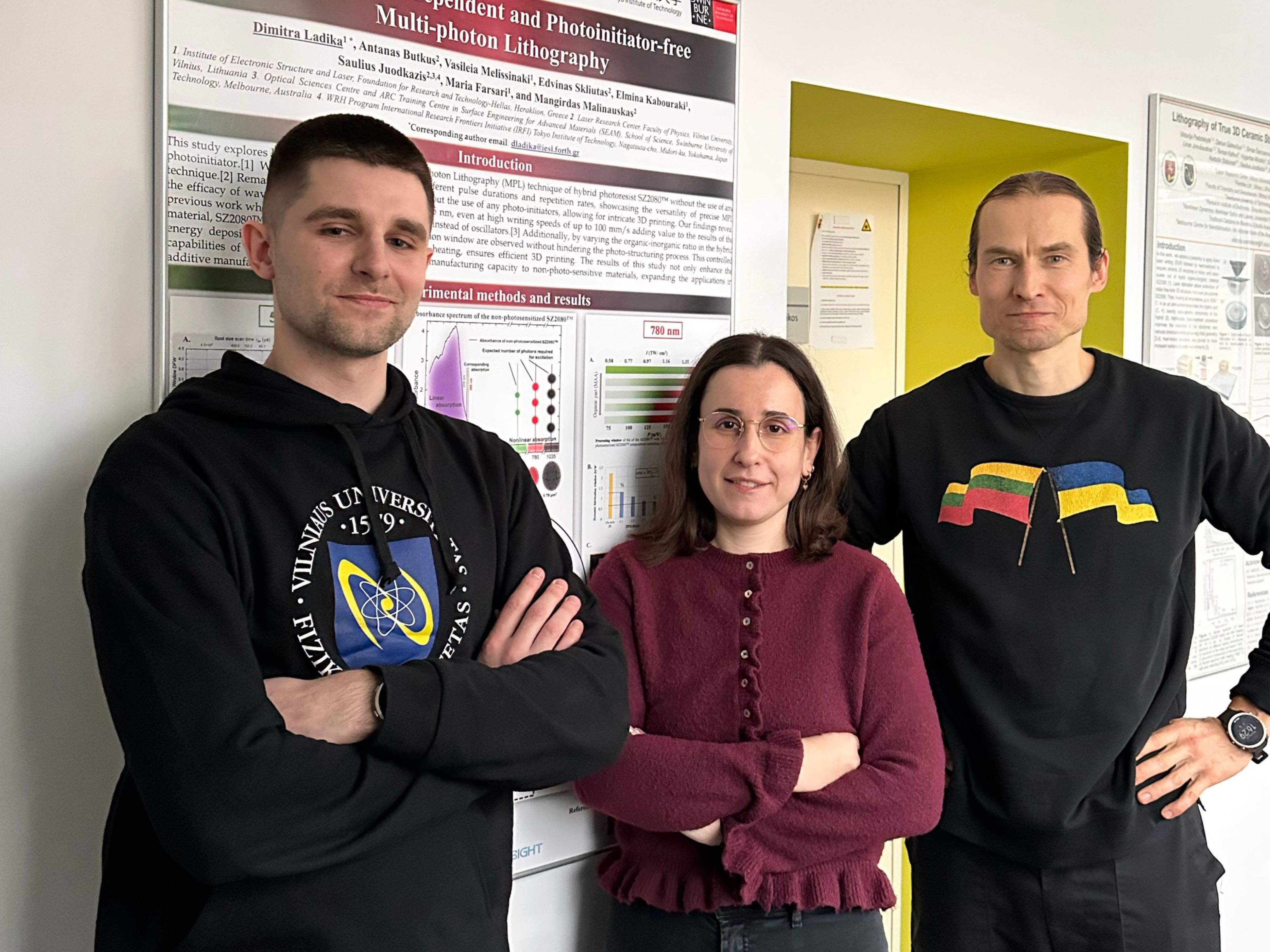Research by VU Scientists on 3D Printing Published in Prestigious Journal “Light: Advanced Manufacturing”

Researchers from the Laser Research Centre (LRC) at the Faculty of Physics, Vilnius University (VU), in collaboration with colleagues from the Institute of Electronic Structure and Laser (IESL), Foundation for Research and Technology-Hellas (FORTH), have published an article in the prestigious journal “Light: Advanced Manufacturing”.
The article focused on laser-based 3D printing at the nanoscale, which is widely used in fields such as micro-optics, medicine, and advanced materials. Typically, this technique requires special chemical substances called photoinitiators to trigger the photopolymerisation (Printing) process. However, these additives can be toxic or highly autofluorescent, making them unsuitable for biomedical applications.
“In our latest research, we demonstrate a new approach for high-resolution laser-based 3D Printing using a material that works without a photoinitiator by precisely adjusting the femtosecond laser exposure intensity. By employing three different laser wavelengths, we demonstrate that fine nanoscale structures can be efficiently and rapidly printed by adjusting the laser exposure parameters, namely, light intensity. This opens the door to safer and broader applications by eliminating risks associated with unwanted chemical residues or interference in sensitive devices,” explains Dr Dimitra Ladika.
Prof Mangirdas Malinauskas, the group leader of the Laser Nanophotonics laboratory at VU`s Laser Research Centre, highlights that international collaboration has accelerated the development of photoinitiator-free materials for nanoscale laser 3D printing.
“This expands additive manufacturing capabilities, paving the way for cleaner, more adaptable, and eco-friendly fabrication techniques,” the scientist notes.
This work marks an important milestone for Dr D. Ladika, strengthening her ties with VU LRC and career prospects at VU. Her journey began with a short LaserLab research visit in 2023. Dr D. Ladika is one of the winners of the 2024 Young Scientist Co-Funding competition. At the beginning of this year, she joined the Laser Nanophotonics group and continues her work, driving advancements in laser-based additive manufacturing and light-assisted characterisation of 3D microstructures.
“Having Dimitra joining our group, we deepen and widen our capacity in developing Multi-Photon Lithography as a precision 3D printing technique as well as sophisticated characterisation of the produced micro-structures. I am very happy the research work already involved young researchers from the VU Faculty of Physics, like Antanas Butkus, who graduated Light Engineering Bachelor program with Cum Laude diploma. Also, it connects our institution with other renowned research centers like IESL-FORTH, enabling regular student and staff-exchange mobility schemes,” says Prof M. Malinauskas.